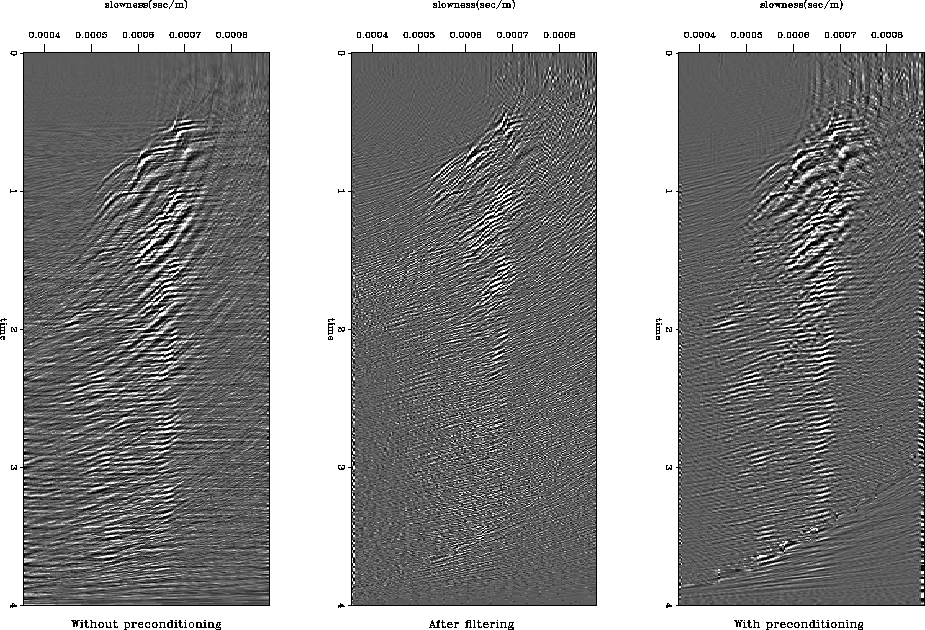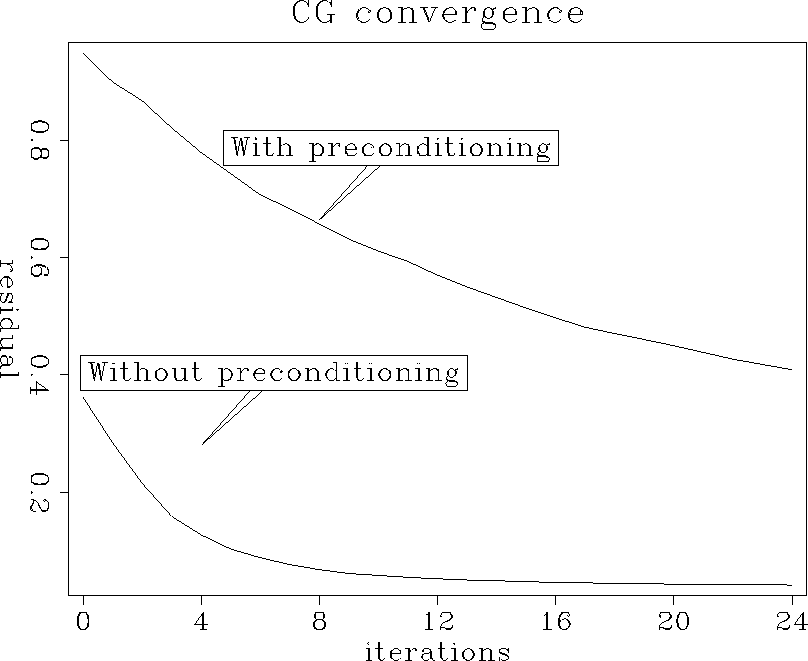To make the velocity stack usable for other processing steps such as multiple removal, I should try to incorporate the PEF described above into an inversion scheme that compensates for energy removed during the filtering.
Following the ``trial solution''
approach described in Claerbout (1999), I change the variables ![]() and solve equation (1) for the preconditioned variable
and solve equation (1) for the preconditioned variable ![]() :
:
| |
(2) |
Operator ![]() in equation (2) is a cascade of two filters
described in the previous section. After finding a solution for
in equation (2) is a cascade of two filters
described in the previous section. After finding a solution for ![]() ,I evaluate
,I evaluate ![]() to obtain the solution of the original problem.
To avoid high frequency noise in the model, I introduce a
regularization term into the problem and solve the system of equations:
to obtain the solution of the original problem.
To avoid high frequency noise in the model, I introduce a
regularization term into the problem and solve the system of equations:
| |
||
| (3) |
In this paper I used the laplacian as the regularization operator ![]() in equation (3).
in equation (3).
Figure 5 shows the solution to the least-squares problem [equation (1)] after 25 iterations of the conjugate-gradient method, the velocity stack after the filtering, and the solution to the preconditioned least-squares problem [equation (3)] after 25 iterations of the conjugate-gradient.
 |
Figure 6 shows the residual for the preconditioned problem [equation (3)] and the problem without preconditioning [equation (1)].
|
res_ann
Figure 6 CG convergence with and without preconditioning |  |
As Figures 5 and 6 show, although the solution for the preconditioned problem does not have artifacts, it converges much slower than the solution to the problem without preconditioning, which probably makes this method of preconditioning impractical.